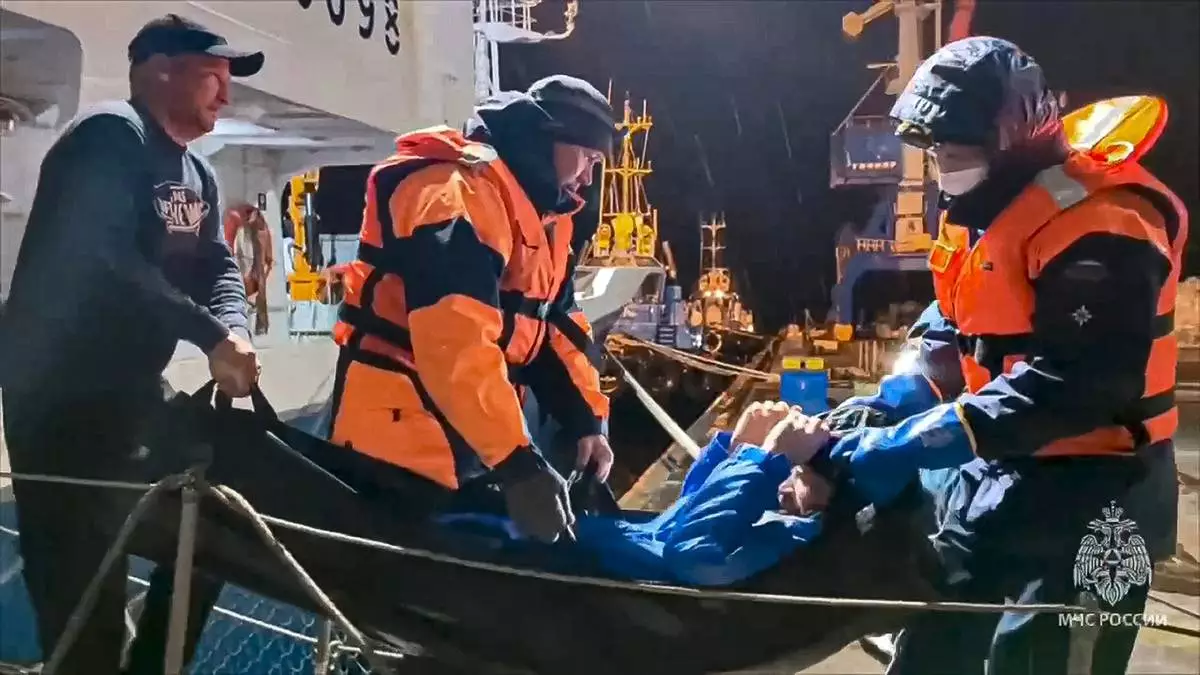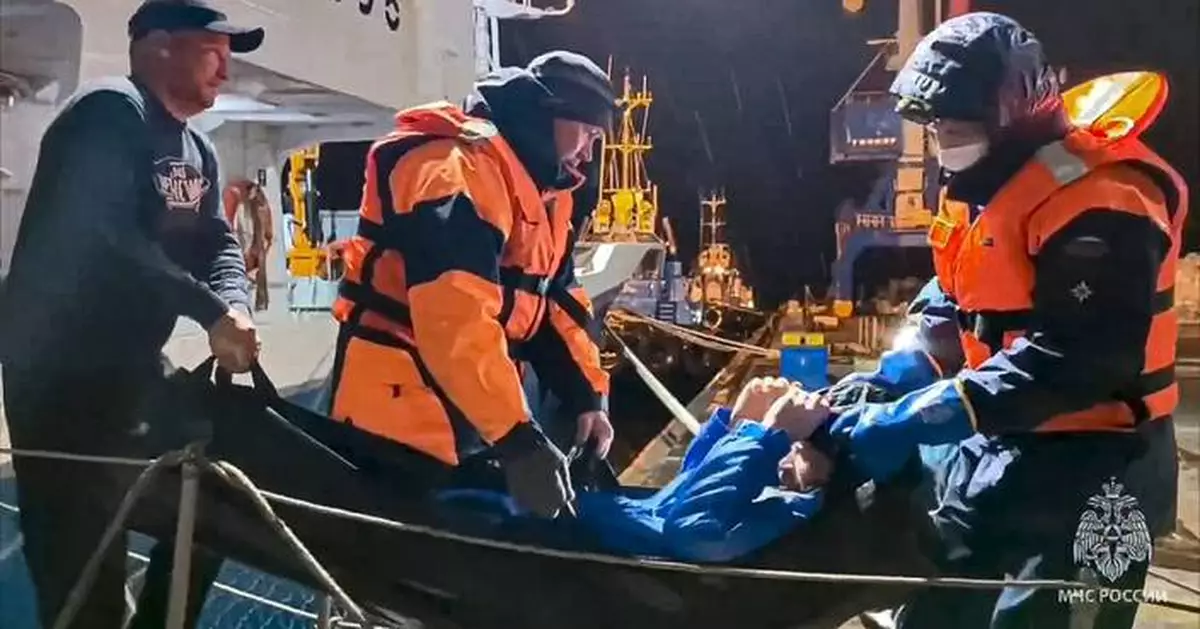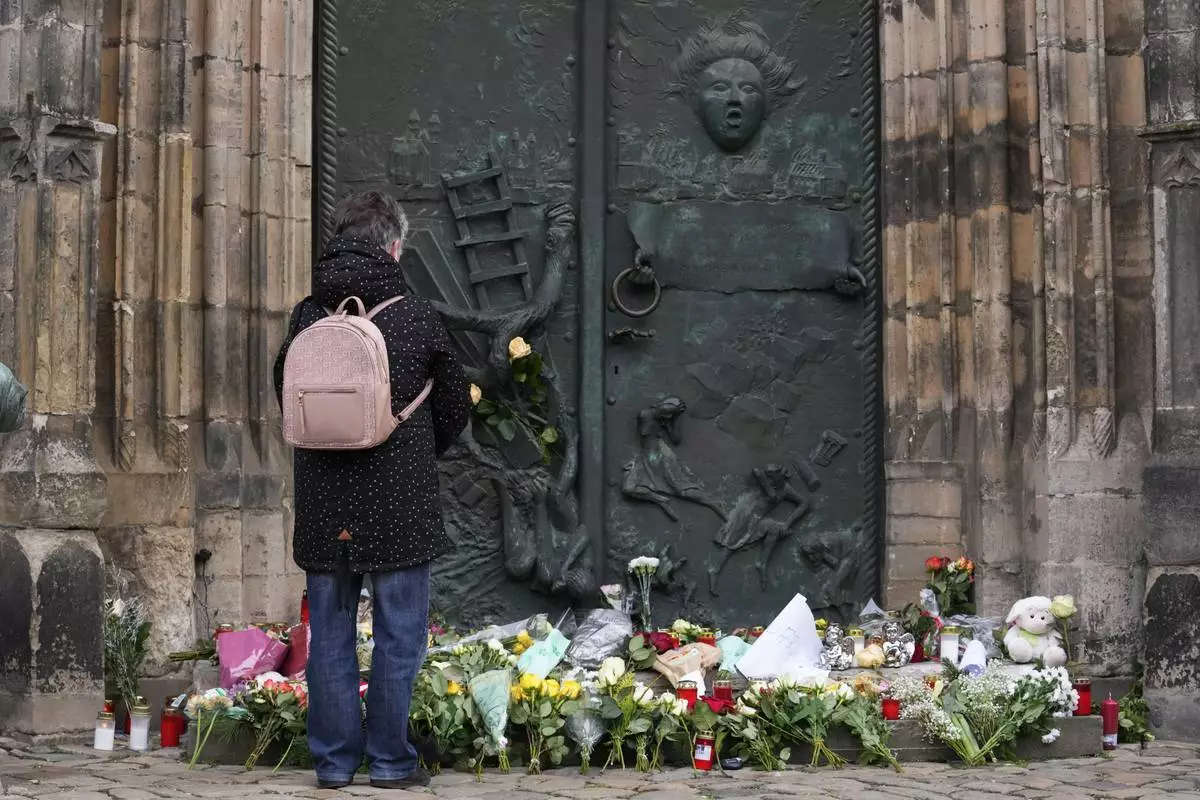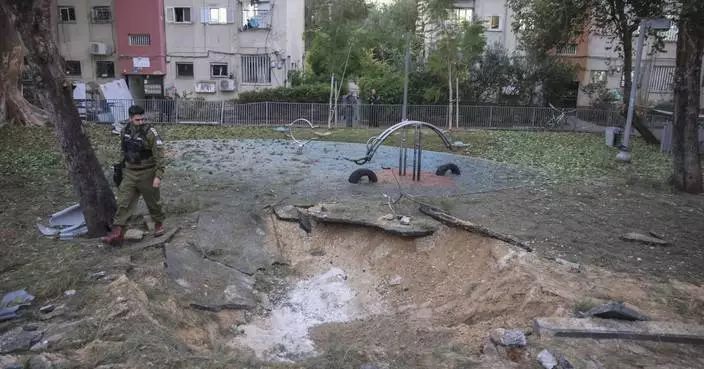MOSCOW (AP) — A Russian man was rescued in the stormy Sea of Okhotsk after surviving for more than two months in a tiny inflatable boat that lost its engine, but his brother and nephew have died, officials said Tuesday.
The prosecutor's office in the far east of Russia said that the man was rescued Monday by a fishing vessel off the Kamchatka Peninsula.
It didn't name the survivor, but Russian news reports identified him as 46-year-old Mikhail Pichugin, who in early August set on a journey to watch whales in the Sea of Okhotsk together with his 49-year-old brother and 15-year-old nephew. Their bodies were reportedly found in the boat when the Angel fishing vessel rescued Pichugin.
Media reports said the three men traveled to the Shantar Islands off the northwestern shore of the Sea of Okhotsk in early August. They went missing after setting off for Sakhalin Island from Cape Perovsky in the Khabarovsk region on Aug. 9. A rescue effort was launched but failed to locate them.
Russian media reported that the trio had a small food ration and about 20 liters (5.2 gallons) of water when their engine failed and they found themselves adrift.
Pichugin weighed about 50 kilograms (110 pounds) when he was found, having lost half of his body weight, news reports said.
When the crew of the fishing vessel spotted the tiny inflatable boat on their radar, they initially thought it was a buoy or a piece of junk, news reports said, but they turned on the spotlight to make sure and were shocked to see Pichugin.
He didn't immediately say how he managed to survive in the Sea of Okhotsk, the coldest sea in East Asia and known for its gales, and how his brother and nephew died. The crew of the ship that rescued Pichugin found their bodies tied to the boat to prevent them from being washed away by the sea, news reports said.
When Pichugin was rescued, his boat was drifting about 11 nautical miles off Kamchatka's shore, about 1,000 kilometers (about 540 nautical miles) from their departure point on the other side of the Sea of Okhotsk.
A video released by the prosecutor's office showed an emaciated man in a life jacket desperately shouting “come here!” and the crew working to pull him back to safety.
“I have no strength left,” Pichugin said as he was taken to safety.
Prosecutors said that they launched an investigation into the incident on charges of violation of safety rules that resulted in deaths.
Pichugin was rushed to an emergency care unit at the Magadan hospital. Chief doctor Yuri Lednev told reporters that he was suffering from dehydration and hypothermia but was in stable condition.

In this photo taken from video released by the official telegram channel of the Russian Far Eastern Transport Prosecutor's Office on Tuesday, Oct. 15, 2024, a Russian man who spent more than two months adrift in an inflatable boat is seen before being rescued by a fishing vessel in the Okhotsk Sea near the village of Ust-Khairuzovo in Kamchatka region of Russian far east. (Official telegram channel of the Russian Far Eastern Transport Prosecutor's Office via AP)

In this photo taken from video released by the official telegram channel of the Russian Far Eastern Transport Prosecutor's Office on Tuesday, Oct. 15, 2024, a Russian man who spent more than two months adrift in an inflatable boat is seen before being rescued by a fishing vessel in the Okhotsk Sea near the village of Ust-Khairuzovo in Kamchatka region of Russian far east. (Official telegram channel of the Russian Far Eastern Transport Prosecutor's Office via AP)

In this photo taken from video released by Russian Emergency Ministry Press Service on Tuesday, Oct. 15, 2024, Russian emergency workers transfer Mikhail Pichugin into an ambulance ashore after he was rescued by a fishing vessel following 67 days adrift in the Sea of Okhotsk near the village of Ust-Khairuzovo in Kamchatka region of Russian far east. (Russian Emergency Ministry Press Service via AP)

In this photo taken from video released by Russian Emergency Ministry Press Service on Tuesday, Oct. 15, 2024, Russian emergency workers pull Mikhail Pichugin ashore after he was rescued by a fishing vessel following 67 days adrift in the Sea of Okhotsk near the village of Ust-Khairuzovo in Kamchatka region of Russian far east. (Russian Emergency Ministry Press Service via AP)











